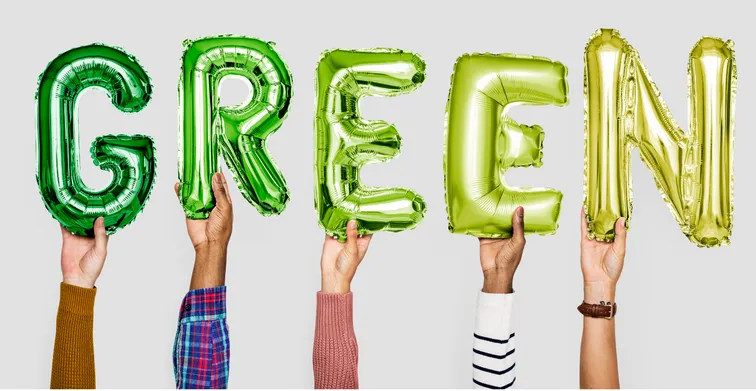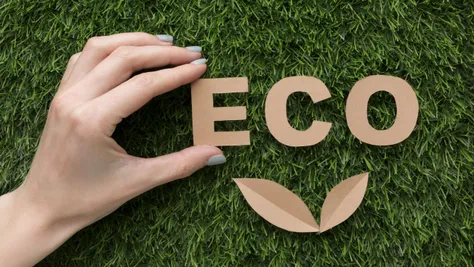The European Union is proposing to change the rules for labelling “eco-friendly” products. More and more consumers are reaching for more sustainable products, but the green label should not just be a marketing ploy. Only truly sustainable products will be allowed to bear the label, and greenwashing will be considered an unfair commercial practice. What will businesses need to get ready for if the directive is adopted?
Products advertised as greener, greener option, CO2 neutral, etc., are abundant on the market, from sustainable fashion to compostable coffee cups. However, the labelling of products or entire companies as “eco-friendly” is currently not subject to any specific regulation beyond the general requirements of consumer legislation. According to a 2020 European Commission study, 53.3% of environmental claims provide vague, misleading or unsubstantiated information about products’ environmental characteristics[1].
The European Commission is thus proposing to amend the consumer directives[2] to introduce common (and stricter) rules on the use of environmental claims. The rules would impose a number of new obligations on businesses that voluntarily choose to use them. The proposal would require businesses to be able to substantiate all their environmental claims, set conditions for sustainability certifications, and require more information to be provided to consumers – for example on whether a product can be repaired if it breaks down.
Environmental claims
The proposed rules should apply to any “environmental claim” - that is, any statement or representation that suggests that a product or trader has a positive impact on the environment, or that it has a neutral impact, or a lower impact than other products or traders. For example, a claim that a product is “eco”, “sustainable”, “we are committed to reducing the CO2 production of this product by 50% by 2030”, or even “30% recycled PET bottles” may give the consumer the impression that it is a greener option.
Whether it is a sticker on the packaging or a message in an advertisement, the business must be able to substantiate the environmental claim before it is made. In order to verify the truthfulness of claims, the directive introduces the so-called “life-cycle” approach, which looks at the entire life cycle of a product, from raw materials to the end-of-life.
Ban on greenwashing
In order to combat greenwashing, the proposal introduces, in particular, the following measures:
- verification mechanism for substantiation of claims
- businesses will need to be able to substantiate the claim with relevant documentation;
- they will also have to provide the data to consumers – for example, via a web link or QR code – so that consumers can make a decision before the purchase;
- score on environmental impact
- products will only be allowed to be labelled with aggregated scores on environmental impacts (e.g. overall impact on biodiversity, climate, water consumption, soil, etc.) established on a standardised method on the EU level;
- restrictions on ecolabels
- businesses can voluntarily label their products with an environmental trust mark – these currently vary widely across the EU in terms of the stringency of the criteria for their use, the degree of third-party oversight, and in the transparency of methodology[3];
- public certification schemes for ecolabels labels will only be allowed to be set up at EU level;
- private certification schemes will be subject to approval by Member States – and should only be approved if they provide added value;
- this is expected to significantly reduce the number of ecolabels on the EU market;
- exclusion of microenterprises
- microenterprises with up to 10 employees may be excluded from the requirements on substantiation of environmental claims;
- however, even microenterprises can be fined for unfair commercial practices if the claim is unsubstantiated or misleading.
Unsubstantiated or misleading environmental claims will then be considered unfair commercial practices.
When will it start to apply?
The European Parliament is expected to discuss the proposal later this year and, if approved, the directive would come into force in 2024. Member States would then have two years to implement the measures into national legislation. Adoption of the directive would mean greater transparency for consumers, but also an additional administrative burden for businesses. They will have to prepare for a number of new obligations, not only in product labelling, but also in marketing communication and other areas. These requirements will impose new costs on businesses, and many may decide to stop using environmental claims. In turn, those who successfully adapt to the new rules can gain a competitive advantage by making green labels attractive to customers who prefer sustainable products.
- [1] – Environmental claims in the EU: Inventory and reliability assessment Final report, European Commission 2020, https://ec.europa.eu/environment/eussd/smgp/pdf/2020_Greenclaims_inventory.zip.
- [2] – Proposal amending Directives 2005/29/EC and 2011/83/EU as regards empowering consumers for the green transition through better protection against unfair practices and better information of March 2022(2022/0092(COD)), followed by further specifications in the Proposal for a Directive on substantiation and communication of explicit environmental claims (2023/0085(COD)) of March 2023.
- [3] – For example, the EU Ecolabel based on Regulation (EC) No 66/2010 on the EU Ecolabel, and a number of labels awarded by private entities in the EU, available on the website https://www.ecolabelindex.com/ecolabels/?st=region=europe.








